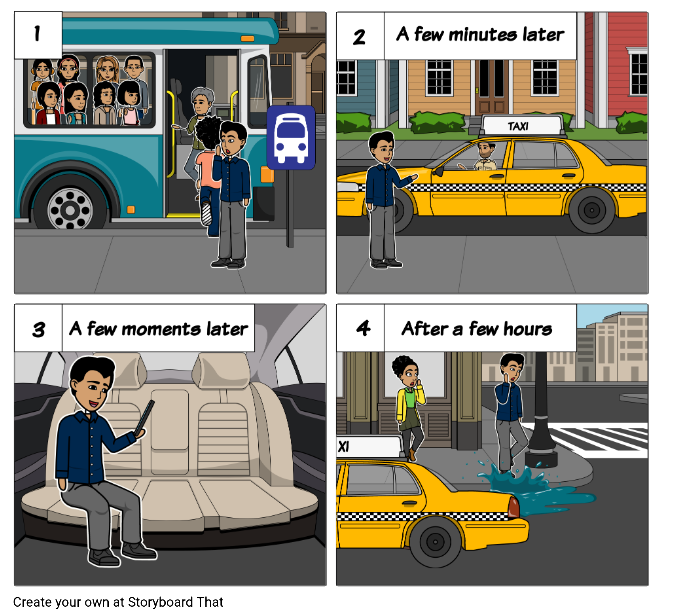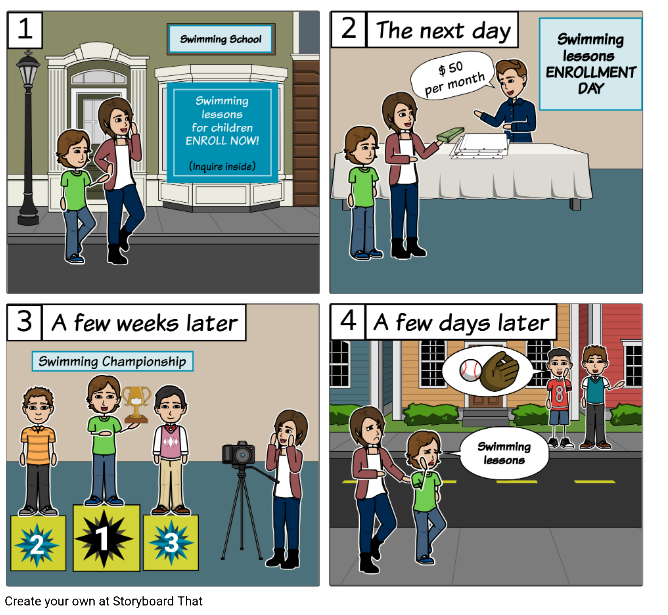PART A_1
Let’s introduce ourselves to each other.
自己紹介をしましょう。
PART A_2
My name is ________. What is your name?
PART A_3
I am ________. Nice to meet you. Let’s start our lesson.
PART B_1
We will read aloud the words below. Please repeat after me. I will check your pronunciation.
単語を音読します。講師に続いて読みましょう。講師は発音を確認します。
(Please send the mispronounced words and expressions to your student.)
PART B_2
| umbrella | 傘 |
| yours | あなたのもの |
| mine | わたしのもの |
| summer | 夏 |
| season | 季節 |
PART B_3
Now, let’s review some words from part B_2.
ではいくつかの単語を復習してみましょう。
(Please review the mispronounced words and expressions from part B_2.)
PART B_4
PART C_1
We will read aloud the sentences below. I will check your pronunciation and intonation.
文を読みます。講師が発音、イントネーションについて確認します。
(Please send the mispronounced words and expressions to your student.)
PART C_2
| 1. | Whose umbrella is this? |
| 2. | It’s my brother’s. |
| 3. | Mine is pink. |
| 4. | How old is your brother? |
| 5. | Which season do you like, summer or winter? |
PART C_3
Now, let’s review some words and sentences from part C_2.
ではいくつかの単語、文章を復習してみましょう。
(Please review the mispronounced words and sentences from part C_2.)
PART C_4
PART D_1
We will read aloud the dialogue below. I will check your pronunciation and intonation.
会話文を読みます。講師が発音、イントネーションについて確認します。
(Please send the mispronounced words and expressions to your student.)
PART D_2
|
TUTOR:
|
Whose umbrella is this? |
|
STUDENT:
|
It’s Yuki’s. By the way, I saw a green bicycle in front of your house. Is that yours? |
|
TUTOR:
|
No, it’s my brother’s. Mine is pink. |
|
STUDENT:
|
How old is your brother? |
|
TUTOR:
|
My brother is 12 years old. It’s almost summer. Which season do you like, summer or winter? |
|
STUDENT:
|
I like winter better than summer. |
PART D_3
Now, let’s review some words and sentences from part D_2.
ではいくつかの単語、文章を復習してみましょう。
(Please review the mispronounced words and sentences from part D_2.)
PART D_4
PART E_1
Now, you will answer the questions below using the grammar topics you learned.
I will check if your sentences are complete and if the grammar is correct.
I will check if your sentences are complete and if the grammar is correct.
以下の質問に答えます。習った文法を使って回答しましょう。
講師は文法と完全な文章であるかを確認します。
講師は文法と完全な文章であるかを確認します。
(Please send the sentences that need grammar corrections to your student.)
PART E_2

| Whose bicycle is it? |
PART E_3
PART E_4

| Whose bags are those? |
PART E_5
PART E_6

| Is that laptop yours? |
PART E_7
PART E_8

| Is that coffee mine? |
PART E_9
PART E_10

| Is that book yours? |
PART E_11
PART E_12

| How old is Peter? |
PART E_13
PART E_3
Now, let’s review your answers.
では、あなたの答えを復習してみましょう。その後、修正したあなたの答えを読んでみましょう。
(Please review your student’s answers by sending the correct answers in complete sentences. After that, ask your student to read aloud his or her corrected answers.)
PART E_4
PART F_1
Now, you will ask me questions. Make sentences using the grammar you learned. I will check if your sentences are complete and if the grammar is correct.
今度は、あなたが講師に質問します。習った文法を使って文を作りましょう。
講師は文法と完全な文章であるかを確認します。
講師は文法と完全な文章であるかを確認します。
(Please send the sentences that need grammar corrections to your student.)
PART F_2
| Student: | ? | |
| Tutor: | I like math better than English. | |
| Student: | ? | |
| Tutor: | My brother is 18 years old. | |
| Student: | ? | |
| Tutor: | My bag is pink. | |
| Student: | ? | |
| Tutor: | I am 20 years old. | |
| Student: | ? | |
| Tutor: | My best friend’s shoes are blue. | |
| Student: | ? | |
| Tutor: | That bicycle is Lisa’s. |
PART F_13
PART G_1
Let’s do a free talk about the following topic.
フリートークをしましょう。
(Please do a free talk if you have time left.)
PART G_2
Do you know how to ride a bicycle?




